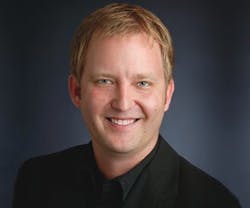Editorial: To Unity (and Humility)
I have a confession to make. In my years at Interiors & Sources, I have often stated my opinion that the interior design profession is too fragmented, and in the recently published book, The State of the Interior Design Profession, I even contributed an essay in which I urged members of the design community to set aside their differences and unite under a common cause of advancing the profession—or risk losing credibility and value to society.
So you can imagine my surprise (and embarrassment) when the managing director of educational services at the International Interior Design Association (IIDA) sent me an e-mail recently asking me to change the verbiage that accompanies our CEU articles, which stated that they have been approved by IIDA (to whom we submit them for approval). Although I was completely aware of the fact that the Interior Design Continuing Education Council (IDCEC) is the continuing education body for all industry associations, including IIDA, ASID, IDC and IDEC, the verbiage in the articles we have published throughout the years simply stated that they were approved by IIDA—a fact that, in hindsight, may have inadvertently given designers affiliated with ASID the impression that these credits were not available to them.
As the managing director correctly pointed out, "Though designers report their CEUs to their appropriate association to which they belong, all courses are approved by IDCEC. … It is through IDCEC that the four Member organizations are able to provide high quality CEUs, as your articles attest."
Wiping the egg from my face, I feel I should offer an apology to you readers out there who may have noticed this oversight and were left with the notion that our magazine only supports the continuing education of designers who are affiliated with IIDA. Let me be absolutely clear—we are committed to the advancement of the entire interior design profession, including all industry associations.
As ASID president Sari Graven states so appropriately in her Forum article (see p. 68), "Our future relies on our ability to create and sustain balance. Differences are healthy; they offer perspective and spur creativity. But absolutes get us in trouble; if not through the marginalization they cause then by the paralysis that otherwise results. We are smart, motivated, visionary people who are fully capable of navigating an environment that needs us to look at the world not as 'either/or' but as 'both/and.'"
Here's to a healthy dose of unity (and a little humility).
